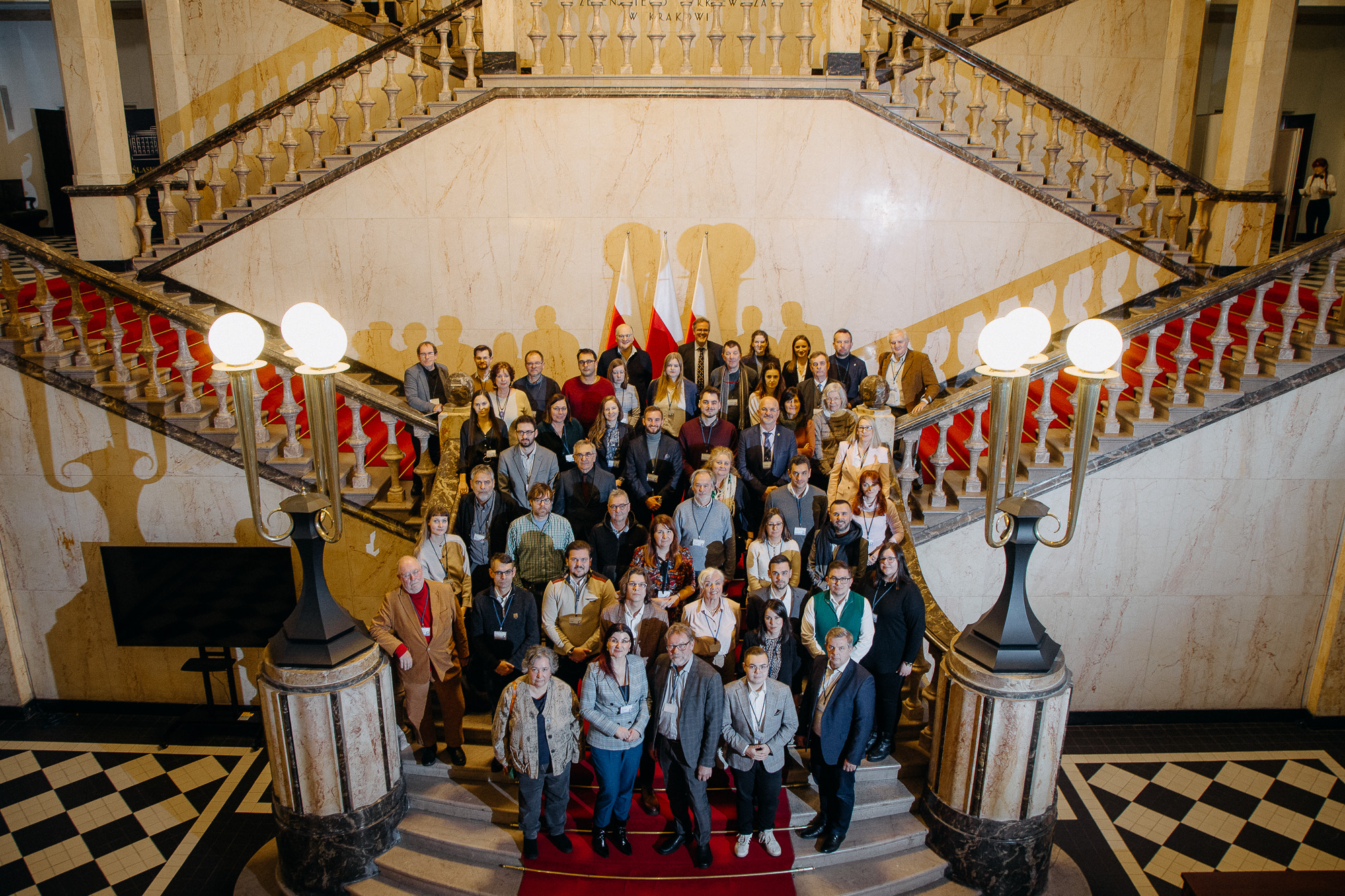
Forum of European Minority Regions: companies and public services can only win by incorporating minority languages
07.12.2023Minority languages and the labour market – advantage or strain – was the question FUEN’s 7th Forum of European Minority Regions was framed by. Focusing on the advantages of a bilingual labour market, the Forum took place on 1-3 December 2023 in Opole/Oppeln and Katowice/Kattowitz, Poland.
It is easier to find a job, change jobs and to be promoted in your job if you speak the minority language, according to Antonio di Paolo, professor in economics at the University of Barcelona, Spain. The local language and culture is an added value that can make a region more attractive to foreign investment. Bi- or trilingual regions tend to be more prosperous than monolingual ones. But while it is an advantage to know the minority language at a personal or company level, organisations promoting the minority language and culture might see it as a drawback since those knowing the language are lured to the private sector by higher salaries.
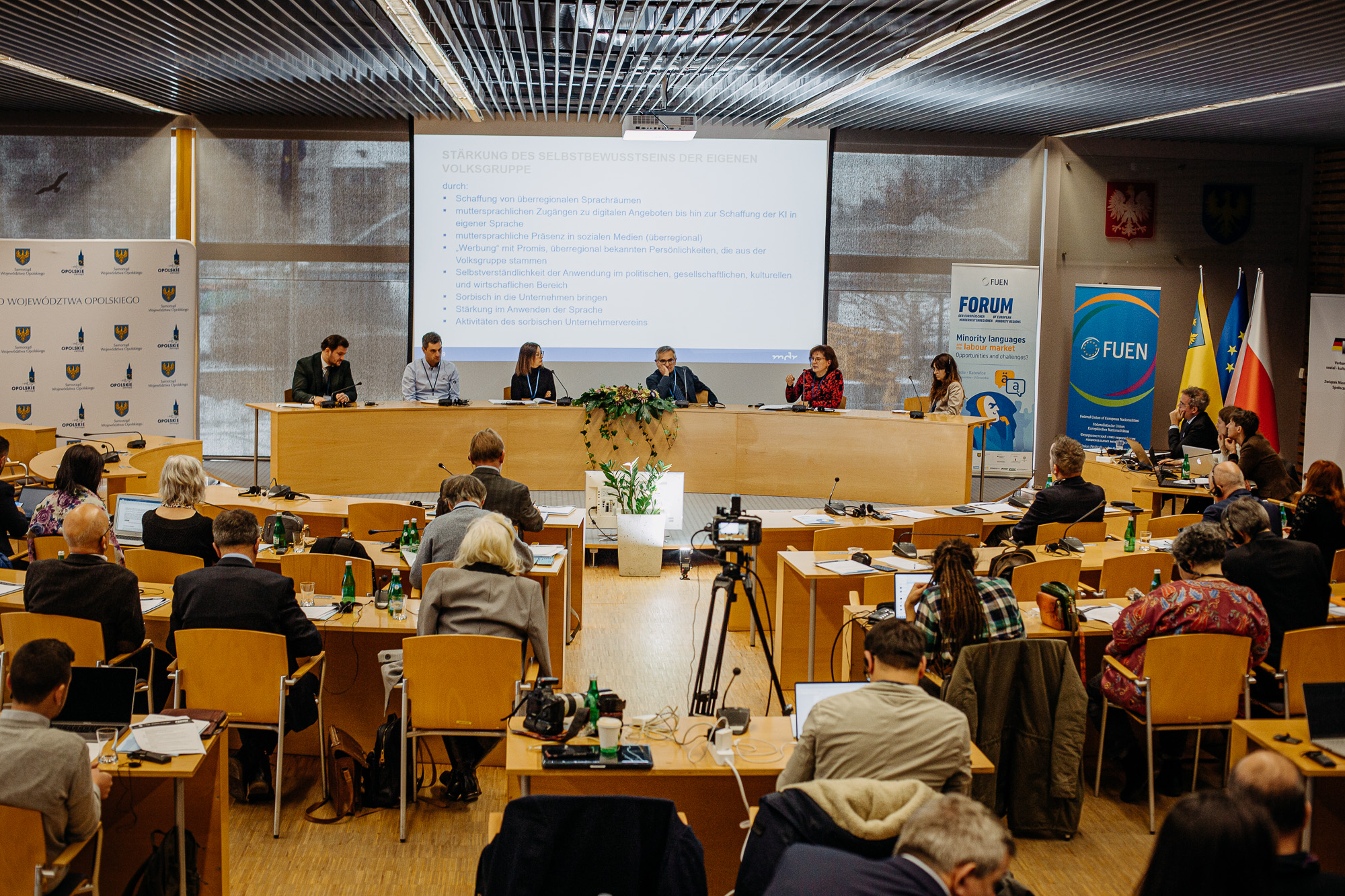
The first panel in Opole on the 1st of December dealt with the advantage of minority languages for people and companies. Here, the minorities themselves need to have initiative, while companies have to realise the advantages of incorporating these languages in their communication. The value of languages is determined by supply and demand, and since most people claim they speak English, its added value is smaller than that of other languages such as German in Poland, Hungarian in Slovakia or Romania, Catalan in Spain or Swedish in Finland. It is no longer considered a merit to know English, it is more or less a prerequisite, something taken for granted.
The second panel discussion in the afternoon dealt with use of minority languages in the public sector. In this domain, the state’s role is much more relevant, and the possibility to use their language in the public sphere is vital for smaller communities, as it gives the language the prestige which serves as an incentive for the members of the community to use it. Bengt-Arne Wickström, Professor in economics at the Andrássy University in Budapest argued for a reform in language policy, for example in the cases where language use in the public sphere is granted only when a certain percentage of population speaks that language, as this regulation does not take into account the absolute number of minority language speakers, especially in large urban areas.
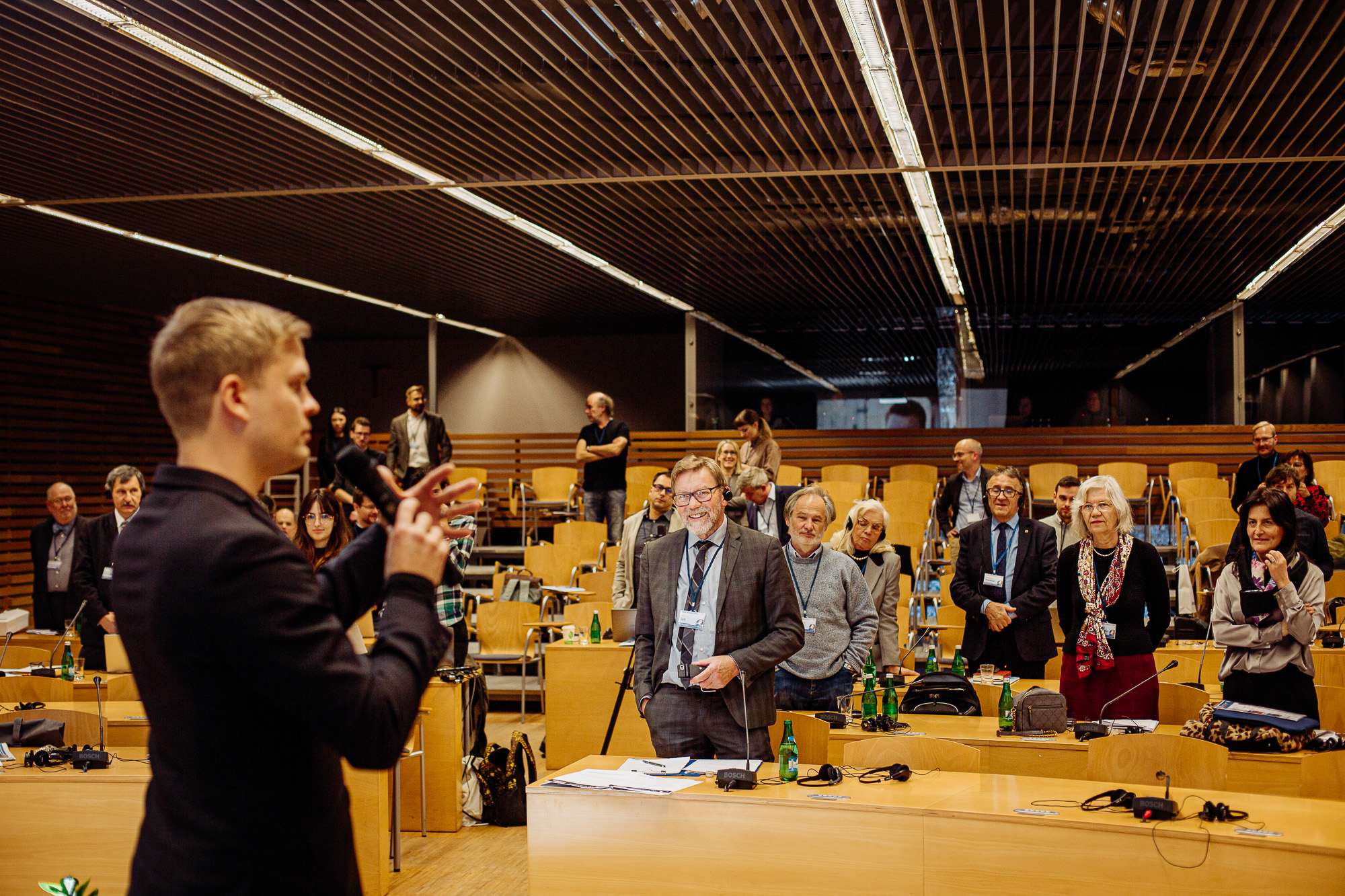
In the third panel the participants discussed the loss of qualified staff that minority organisations face when competing for the same workforce with the private sector that can pay higher salaries. How can these organisations maintain their bilingual staff despite lower salaries? What incentives other than enumeration can be used by NGOs? The discrimination in the labour market due to a minority background was also discussed at the Forum.
The second day of the Forum of European Minority Regions brought a change of scenery, as the event moved to Katowice, where the multilingual cross-border labour market was on the agenda. Beside the effects cross-border labour opportunities can have on autochthonous minorities, the situation of Ukrainian war refugees on the Polish labour market was also presented.
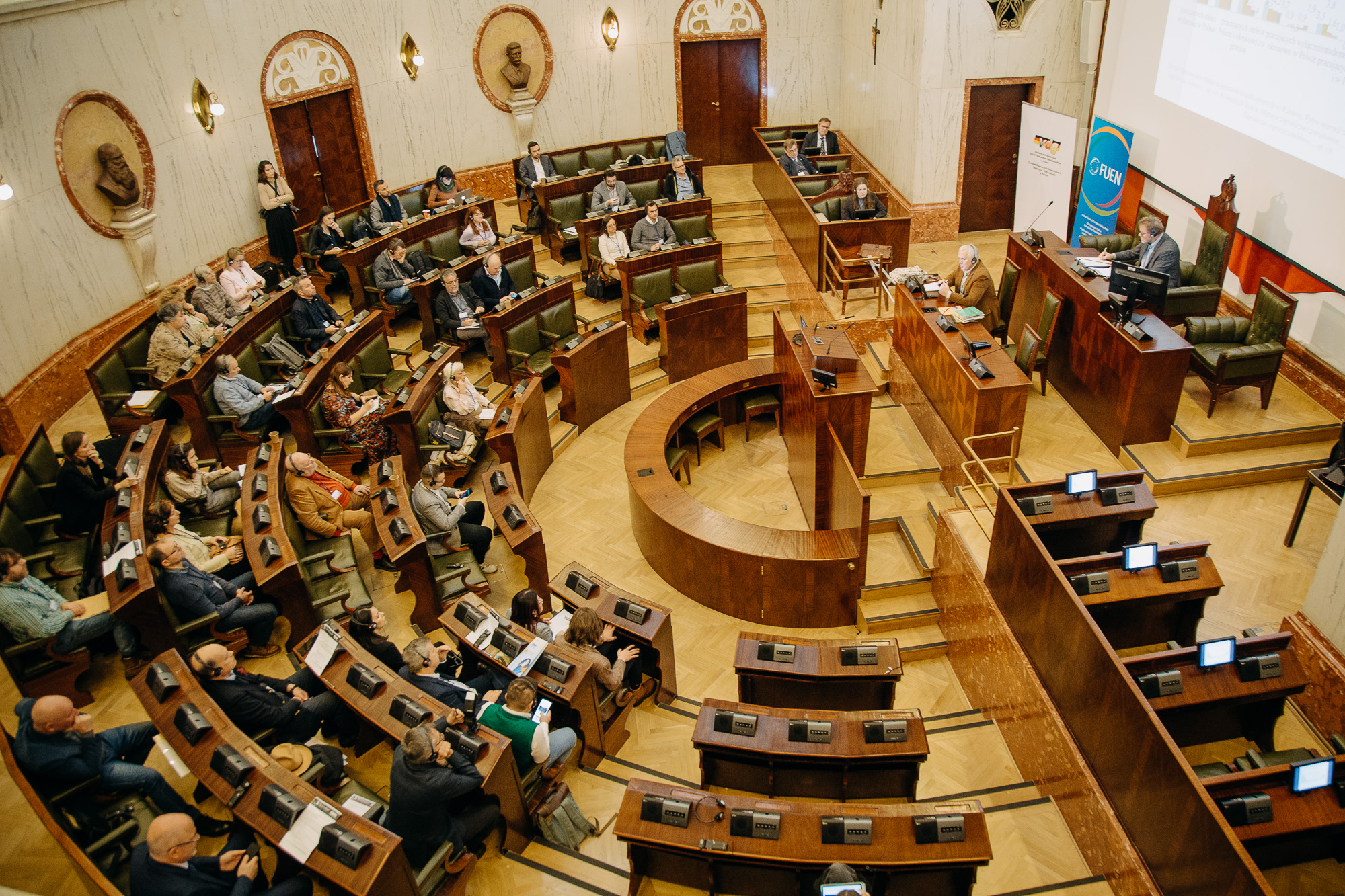
Over 100 participants from more than 20 countries took part in the Forum, which is slowly turning into a well-known brand when it comes to minorities and their economic added value.
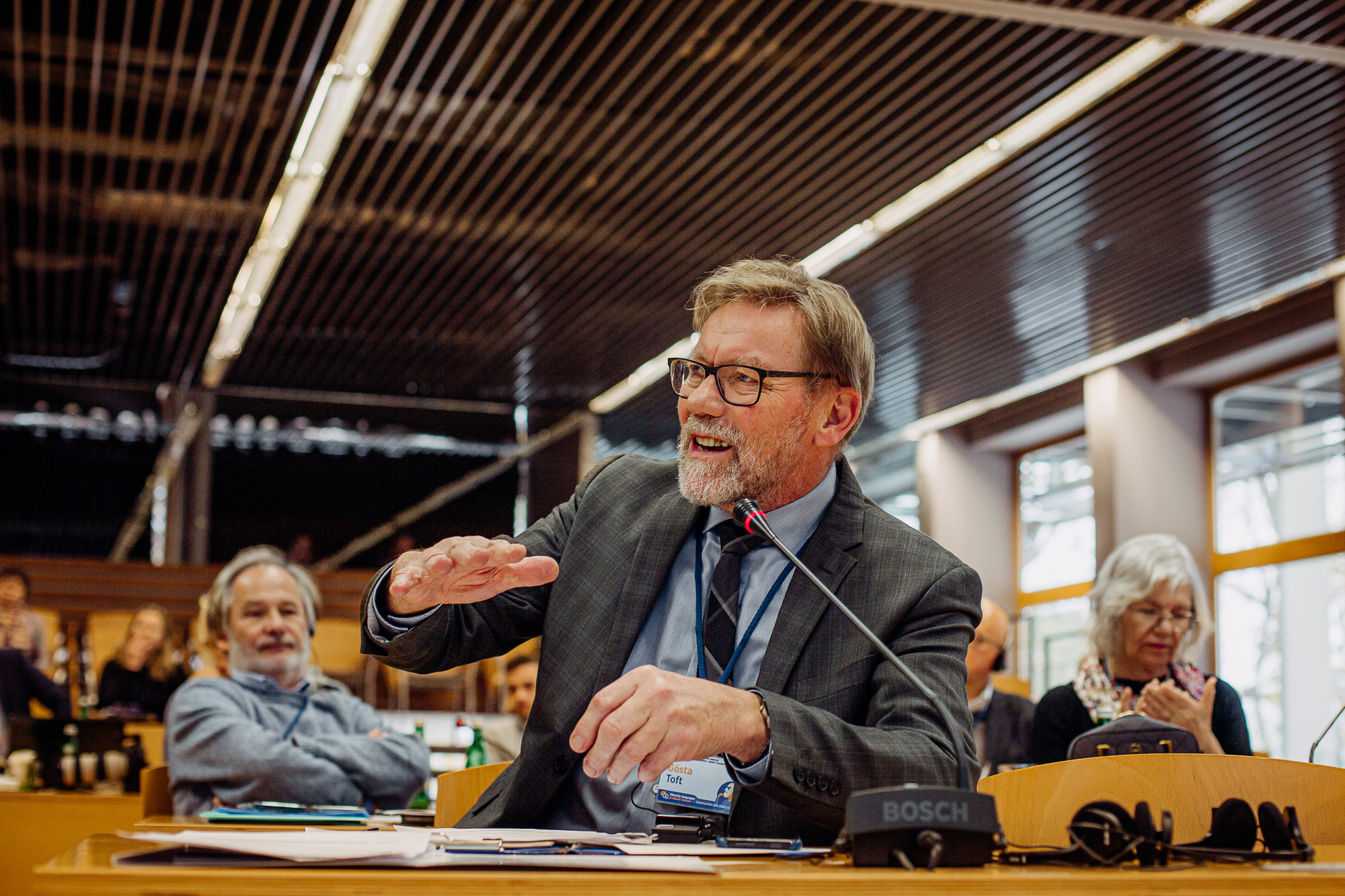
COMMUNIQUÉ DE PRESSE
- FUEN wishes you a peaceful Christmas season, restful days and a bright, hopeful start to the new year!
- FUEN calls on the EU to act over systematic ethnic-based land confiscations in Slovakia
- Women of Minorities conference in Budapest calls for structural change to ensure equal political participation of minority women
- FUEN President Olivia Schubert at UN Forum on Minority Issues in Geneva
- "Laboratory of Peace": 28th Seminar of Slavic Minorities held in European Capital of Culture Gorica/Gorizia
- Equality in Political Participation and Representation: Third “Women of Minorities” Conference to Be Held in Budapest
- FUEN Working Group on Education discusses challenges and future of minority schooling in Europe
- 28th Seminar of Slavic Minorities in Europe to take place in Gorica/Gorizia, Italy
- Olivia Schubert in her first interview as FUEN President
- FUEN Assembly of Delegates elects new leadership – Olivia Schubert becomes new President














